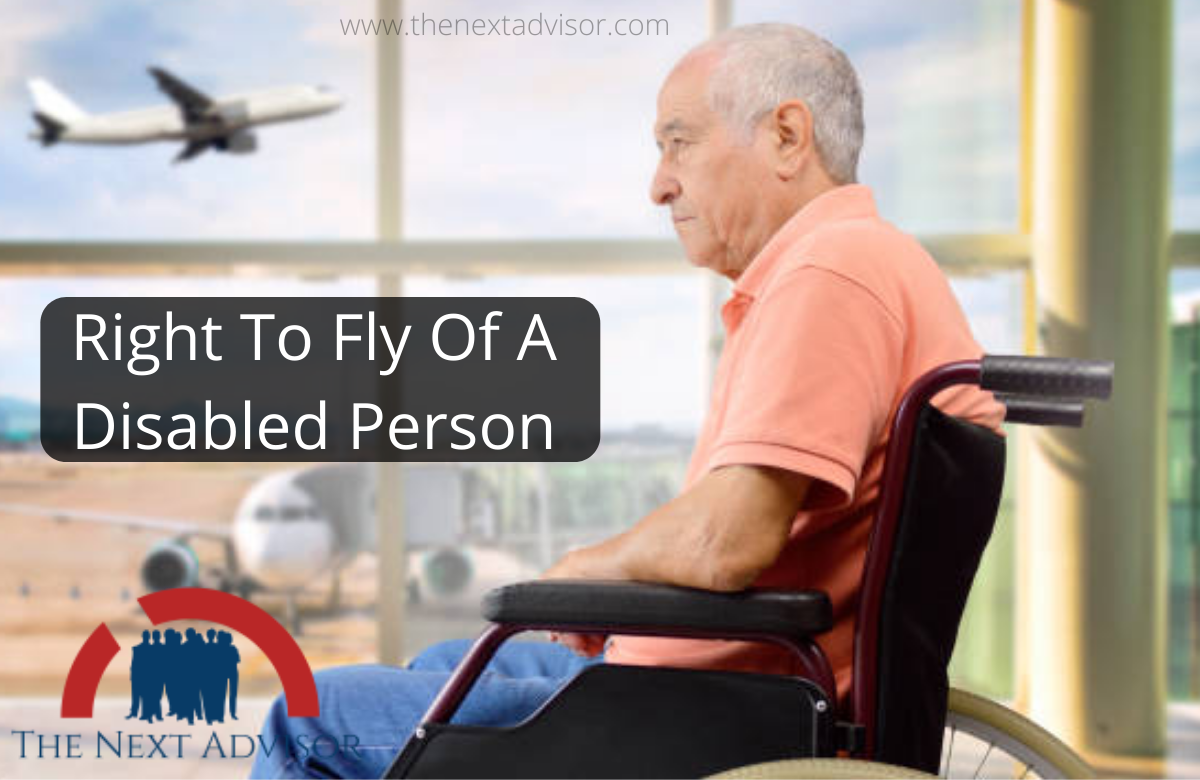Recently Indigo bars specially-abled children from boarding flights at Ranchi airport. The right to fly for a disabled person comes to the fore, not for the first time. The prominent cases earlier like- Jeeja Ghosh & Anr VS Union of India & Ors on 12 May 2016. This is also one of the famous cases in which the Supreme Court discussed the Right to fly for a disabled person.
Let us see which Fundamental rights of this disabled child are violated here. And What was the Supreme court held in the case Jeeja Ghosh & Anr about the Right to fly of a disabled person?
• 19. Protection of certain rights regarding freedom of speech, etc. –
(1) All citizens shall have the right-
(d) to move freely throughout the territory of India;
• 21. Protection of life and personal liberty.-No person shall be deprived of his life or personal liberty except according to procedure established by law.
The Constitution of India is premised on the principle of social justice and human rights. The Preamble, the Directive Principles of State Policy, and the Fundamental Rights enshrined in the Constitution stand testimony to the commitment of the State to its people.
• Article 41 enjoins that, “The State shall, within the limits of its economic capacity and development make effective provision for securing the right to work, to education and to public assistance in cases of unemployment, old age, sickness, and disablement.”
PERSON WITH DISABILITY ACT,2006
Section 2. (s) “person with a disability” means a person with long term physical, mental, intellectual, or sensory impairment which, in interaction with barriers, hinders his full and effective participation in society equally with others;
AND, Section 3 of the Act says about the Right to fly of a disabled person
(3) No person with a disability shall be discriminated against on the ground of disability unless it is shown that the impugned act or omission is a proportionate means of achieving a legitimate aim.
(4) No person shall be deprived of his or her personal liberty only on the ground of disability.
According to the 41 Persons with Disabilities Act, many measures have been encouraged to improve accessibility for people with disabilities.
• Establishments associated with providing transport have been encouraged to adapt buses, trains, boats, and aircraft and waiting areas to allow for easy access to people with disabilities and to adapt toilets to allow people with disabilities to use them conveniently.
Jeeja Ghosh and Ors. Vs. Union of India (UOI) and Ors
In 2012, petitioner activist Jeeja Ghosh was forced to deboard a Spicejet flight due to her cerebral palsy when she was on her way to attend a disability rights conference.
1. Supreme Court held – the conduct of the airlines was against the basic rights of human dignity enshrined in Article 21 of the Constitution
2. also in violation of Persons with Disability Act, 1995, Civil Aviation Requirements (CAR) with regard to Carriage by Air of Persons with Disability and/or Persons with Reduced Mobility 3. The Right to Fly is a Fundamental Right.
• SC also highlighted two important rights of disabled travelers:
• accessibility and reasonable accommodation.
• The airline had to pay Rs10 lakh as damages for the mental and physical suffering caused to Jeeja.
• People with disabilities should not be made to remove their prosthetic limbs or calipers during security checks at the airport nor they are lifted manually without consent said security checks should be done without violating the person’s dignity.
Civil Aviation Requirements with regard to ‘Carriage by | Air of Persons with Disability and/or Persons with Reduced Mobility (Right to fly of a disabled person)
issued by the Directorate General of Civil Aviation under Rule 133A of the Aircraft Rules, 1937, which states:
• 4.1 No airline shall refuse to carry persons with disability or persons with reduced mobility and their assistive aids/devices, escorts, and guide dogs including their presence in the cabin, provided such persons or their representatives, at the time of booking and/or check-in for travel, inform the airlines or their requirement.
• Even If there is a plan for emergency travel, the airline shall not refuse to cater to the needs of the disabled person and shall make all reasonable assistance available for the passenger.
4.4. All airlines and airport management shall run programs for their staff engaged in passenger handling e.g. cabin crew/commercial staff including floorwalkers and counter staff etc. for sensitization and developing awareness for assisting passengers with disabilities.
• 4.8. All airlines shall provide necessary assistance to persons with disabilities/impairments who wish to travel alone without an escort.
4.10(b) Once a passenger has bought a ticket for travel, it is obligatory on the part of the airline that he reaches the aircraft from the departure lounge and at the end of the journey from the aircraft to the arrival lounge exit, without incurring any further expenditure.
• 4.13 Airlines shall provide assistance to meet the particular needs of the persons with disabilities and persons with reduced mobility, from the departing airport terminal to the destination airport terminal.
• 5.1 No Medical clearance or special forms shall be insisted tr persons with disabilities or persons with reduced mobility who only require special assistance at the airport for assistance in embarking/disembarking and reasonable accommodation in flight, who otherwise do not require additional assistance.



























